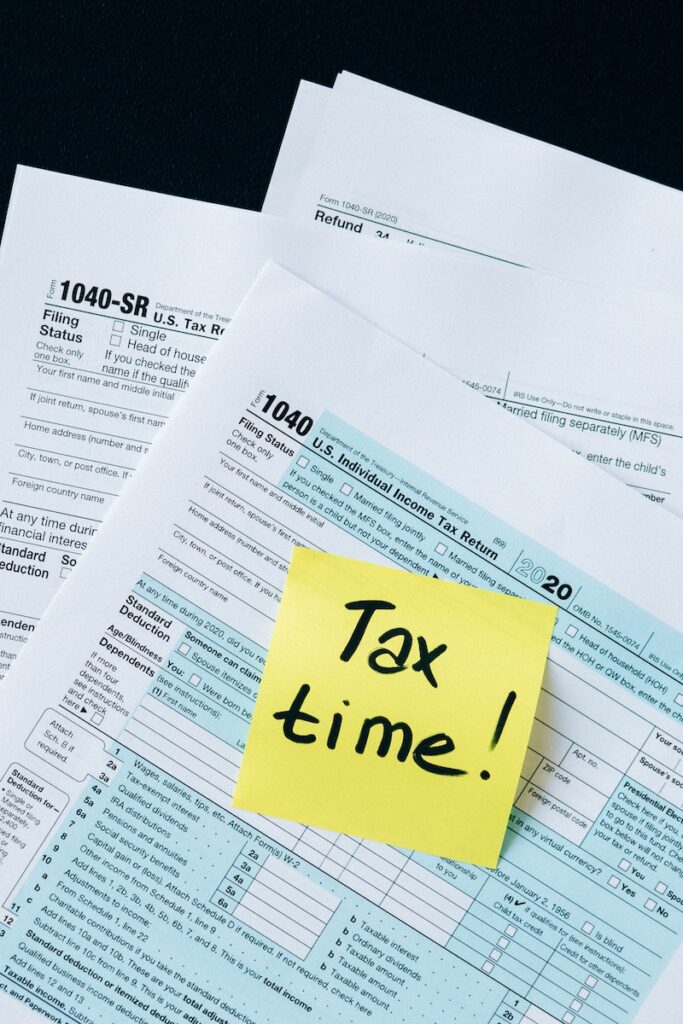Tax Season Strategies for Real Estate Sellers: Essential Checklist
Picture the world of real estate like a detailed painting, with tax-related matters forming some of the most important strokes. If you’re a seller, understanding these tax details can help you see the whole picture more clearly. It’s like knowing the right colors to use to make your painting the best it can be.
In this article, we’re going to provide a detailed checklist for real estate sellers. This checklist is like your paintbrush, helping you navigate the often complex world of taxes during the tax season. We’ll guide you through each step, making sure you have all the right colors on your palette.
So, let’s get started on creating your masterpiece in the world of real estate, making sure you’re well prepared for the tax season. Let’s dive in!
Who Can Benefit from This Checklist?
Before we proceed, let’s identify who can benefit from this essential checklist:
- Individuals selling residential or commercial real estate properties
- Real estate investors looking to optimize their tax obligations
- Real estate buyers aiming to understand tax implications when selling property
- Lenders or borrowers involved in real estate transactions
Tax Season Strategies for Real Estate Sellers
Now that we know the target audience, let’s break down the tax season strategies into manageable steps:
Step 1: Gather and Organize Your Documents
Before you dive into your tax preparation, it’s crucial to gather and organize all relevant documents:
- Property Documents:
- Deed, mortgage documents, lease agreements, closing statements, etc.
- Financial Records:
- Sales contracts, rental income statements, expense receipts, etc.
- Improvement Costs:
- Receipts for renovations, repairs, and other property improvements.
- Previous Tax Returns:
- Review your past returns to identify any carryover items or relevant information.
Having these documents readily available will save you time and make the tax preparation process much smoother.
Step 2: Understand Your Tax Obligations
As a real estate seller, it’s vital to be aware of your tax obligations. Here are some key considerations:
- Capital Gains Tax: Understand how capital gains tax applies to real estate sales and the potential exemptions available to you.
- Depreciation Recapture: If you’ve claimed depreciation deductions in previous years, familiarize yourself with the concept of depreciation recapture and its impact on your tax liability.
- 1031 Exchange: Explore the possibility of utilizing a 1031 exchange to defer capital gains tax by reinvesting in like-kind properties.
- State and Local Taxes: Research the specific tax regulations in your state or locality that may affect your real estate sale.
Understanding your tax obligations will help you make informed decisions throughout the selling process.
Step 3: Consult a Tax Professional
While this checklist provides valuable guidance, it’s always wise to seek advice from a qualified tax professional. They can offer personalized insights and help you navigate complex tax regulations specific to your situation.
Now that we’ve covered the initial steps, let’s move on to the next stage:
Step 4: Calculate Your Adjusted Basis and Capital Gains
Calculating your adjusted basis and capital gains is a crucial step in determining your tax liability. Here’s what you need to consider:
- Subtract your property’s adjusted basis from the final sale price to determine your capital gains.
- Consider any eligible deductions, exemptions, or exclusions that may help reduce your capital gains tax.
- Consult IRS guidelines and tax professionals to ensure accurate calculations and compliance.
By understanding your adjusted basis and capital gains, you can plan your tax strategy more effectively.
Step 5: Report the Sale on Your Tax Return
When filing your tax return, it’s crucial to report the sale of your property accurately. Here are the necessary steps:
- Complete IRS Form 8949 to report the details of your real estate sale.
- Transfer the information from Form 8949 to Schedule D.
- Include any applicable supporting documentation.
- Double-check for accuracy and ensure compliance with tax regulations.
Reporting your sale correctly will help you avoid potential audits or inquiries from tax authorities.
Step 6: Explore Tax Benefits and Deductions
As a real estate seller, there are several tax benefits and deductions you may be eligible for. Consider the following:
- Seller-Financed Mortgage Interest: If you provided financing for the buyer, you might be eligible to deduct the mortgage interest.
- Home Office Deduction: If you conducted any real estate business from a dedicated home office, explore the potential deductions.
- Costs of Selling: Certain expenses related to the sale, such as agent commissions, legal fees, and marketing costs, may be deductible.
Exploring these tax benefits and deductions can help you optimize your overall tax situation as a real estate seller.

Step 7: File an Extension if Needed
If you require additional time to prepare your tax return, consider filing for an extension. Here’s what you need to know:
- Submit IRS Form 4868 to request an automatic extension.
- Remember that an extension grants extra time to file your return, not to pay any taxes owed.
- Consult a tax professional to understand the implications and requirements of filing an extension.
Filing an extension can relieve the pressure of meeting the tax deadline and provide more time for thorough preparation.
Step 8: Seek Professional Guidance
Throughout the entire tax season, it’s essential to seek professional guidance when needed. Consider the following:
- Tax Accountants: Engage a qualified tax accountant to handle complex tax situations or provide expert advice.
- Real Estate Attorneys: Consult with a real estate attorney to ensure compliance with legal requirements and address any potential issues.
By involving professionals, you can mitigate risks, optimize your tax benefits, and achieve a smoother real estate selling process.
The Power of a Well-Executed Tax Season Strategy
Implementing effective tax season strategies can have numerous benefits for real estate sellers. These include:
- Maximizing tax benefits and deductions
- Reducing tax liabilities
- Ensuring compliance with tax regulations
- Minimizing the risk of audits or penalties
By following this essential checklist and utilizing the right strategies, you’ll be well-equipped to navigate the tax season successfully.
Prepare for Tax Season with Confidence
As a real estate seller, tax season can be both daunting and crucial. However, with the right strategies and proper preparation, you can confidently tackle your tax obligations. To summarize:
- Gather and organize your documents
- Understand your tax obligations
- Consult a tax professional
- Calculate your adjusted basis and capital gains
- Report the sale on your tax return
- Explore tax benefits and deductions
- File an extension if needed
- Seek professional guidance
By following these steps, you’ll ensure a smooth tax season and maximize your benefits as a real estate seller. Prepare wisely, consult professionals when necessary, and confidently navigate the complexities of tax season. Now it’s time to implement your tax season strategies and reap the rewards.
